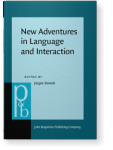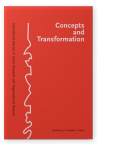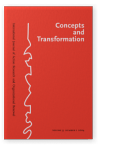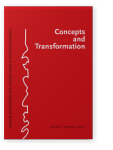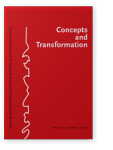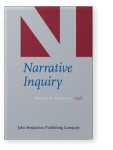John Shotter
List of John Benjamins publications for which John Shotter plays a role.
Book series
Title
The End of Organization Theory?: Language as a tool in action research and organizational development
Øyvind Pålshaugen
[Dialogues on Work and Innovation, 5] 1999. vi, 149 pp.
Subjects Industrial & organizational studies
2010 Dialogical dynamics: Inside the moment of speaking New Adventures in Language and Interaction, Streeck, Jürgen (ed.), pp. 257–272 | Article
As I see it, all communication begins in, and continues with, our living, spontaneous, expressive-responsive (gestural), bodily activities that occur in the meetings between ourselves and the others and othenesses around us. Indeed, as living, embodied beings, we cannot not be responsive in some… read more
2004 Expressing and legitimating ‘actionable knowledge’ from within ‘the moment of acting’ Concepts and Transformation 9:2, pp. 205–229 | Article
As living, embodied beings, communication begins in, and continues with, our living, spontaneous, expressive-responsive (gestural), bodily activities that occur in the meetings between ourselves and the others and othenesses around us. It is by our 1st-person expressions that we influence the… read more
2003 In defense of public spheres and public goods: Reflecting the social dynamics of American and social capitalism Concepts and Transformation 8:1, pp. 1–23 | Article
This article examines the arguments offered by Will Hutton (2002) in drawing out a whole set of crucial differences between American and European capitalism, and why we should prefer the European version. The essential difference, as he sees it, is that while there is an ultimate preference for… read more
2003 Wittgenstein’s philosophy and action research Concepts and Transformation 8:3, pp. 295–301 | Miscellaneous
Three themes seem to be common to both Greenwood’s and Gustavsen’s accounts: One is the social isolation of professional [research] elites from the concerns of ordinary people, which connects with another: the privileging of theory over practice. Both of these are connected, however, with a third:… read more
2000 For Another First Time: “Instructive Spontaneities” in Dialogical Moments Narrative Identity, Bamberg, Michael and Allyssa McCabe, pp. 253–263 | Miscellaneous
2000 Wittgenstein and his Philosophy of Beginnings and Beginnings and Beginnings Concepts and Transformation 5:3, pp. 349–362 | Article
Traditionally, compared with Wittgenstein, philosophers have begun their investigation too late in the day. They have thought of people as being already self-conscious, self-contained individuals, acting in a willful and intellectual manner. Indeed, they have interpreted Wittgenstein’s latter… read more
1999 Review of Zeldin (1998): Conversation Concepts and Transformation 4:2, pp. 225–227 | Review
1999 An organization’s internal public sphere: its nature and its supplementation The End of Organization Theory?: Language as a tool in action research and organizational development, Pålshaugen, Øyvind, pp. 131–146 | Article
1998 Grounding our Lives in Life Itself: "Perspicuous Representations" Rather than Narratives Narrative Inquiry 8:2, pp. 445–453 | Miscellaneous
1998 Telling of (not about) Other Voices: 'Real Presences' within a Text Address given at the Work Research Institute, Oslo, March 13th, 1997 Concepts and Transformation 3:1/2, pp. 77–96 | Article
These notes are offered as a contribution towards creating a 'dialogically-structured' form of action research (Toulmin and Gustavsen 1996). What I do want to do in these notes is to show how Wittgenstein's (1953, 1980) claims — that (i) "nothing is hidden" from us in our conduct of our own… read more
1996 Articulating Practices: Methods and Experiences: Resonances from within the Practice: Social Poetics in a Mentorship Program Concepts and Transformation 1:2/3, pp. 239–247 | Article
In this article we describe an experimental mentoring program conducted in a major medical school in the Northeast of the United States. In it, primary care physicians mentored medical students in the course of conducting their daily practices. All involved were trained in a special reflecting… read more
1996 Articulating Practices: Methods and Experiences: Articulating a Practice from within the Practice Itself: Establishing Formative Dialogues by the Use of a 'Social Poetics' Concepts and Transformation 1:2/3, pp. 213–237 | Article
In this article we describe a set of methods — which we call a 'social poetics ' —for use by a group of practitioners in coming to a more articulate grasp of their own practices, thus to develop them. Crucially influenced by Wittgenstein 's (1953) claims — that "Nothing is hidden" from us in our… read more


